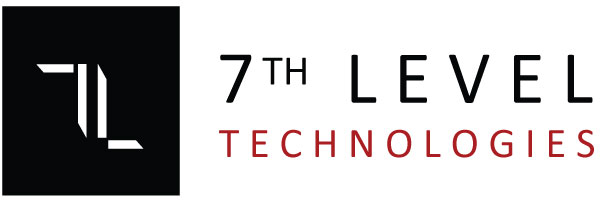Secure Email Services Overview
Secure email services are designed to protect the confidentiality, integrity, and privacy of email communication. These services use various techniques such as encryption, authentication, and secure protocols to ensure that sensitive information sent via email is protected from unauthorized access, tampering, or interception.
Why Use Secure Email Services?
Email is a widely used form of communication, but it’s also vulnerable to various security risks, including:<ul><li>Interception: Emails can be intercepted during transmission, especially if sent over unsecured channels.</li><li>Phishing and Spoofing: Attackers can impersonate trusted sources to steal sensitive information.</li><li>Data Breaches: If email accounts or servers are compromised, all emails stored in them can be accessed.</li><li>Legal Compliance: In many industries (like healthcare or finance), regulations (e.g., HIPAA, GDPR) require secure communications to protect personal data.</li></ul>
Key Features of Secure Email Services
<ol><li>Encryption<ul><li>End-to-End Encryption (E2EE): The email content is encrypted at the sender’s device and only decrypted on the recipient’s device. This ensures that only the intended recipient can read the email. Popular protocols include PGP (Pretty Good Privacy) and S/MIME (Secure/Multipurpose Internet Mail Extensions).</li><li>Transport Layer Security (TLS): TLS encrypts emails during transmission between mail servers, protecting data as it moves through the internet. However, it does not protect the email once it reaches the recipient’s server.</li></ul></li><li>Authentication<ul><li>Sender Policy Framework (SPF): Prevents email spoofing by verifying the sender’s IP address.</li><li>DomainKeys Identified Mail (DKIM): Adds a digital signature to emails to verify that the email has not been altered during transit.</li><li>DMARC (Domain-based Message Authentication, Reporting & Conformance): Helps detect and prevent email spoofing by using SPF and DKIM together.</li></ul></li><li>Data Loss Prevention (DLP)<ul><li>DLP tools help prevent the accidental or intentional sending of sensitive data via email. They can scan outgoing emails for sensitive information such as credit card numbers, personal identification information, or proprietary business data.</li></ul></li><li>Secure Email Gateways<ul><li>These act as filters for inbound and outbound emails, protecting against malware, spam, phishing, and ransomware. They are typically used to prevent threats from reaching the email server or client.</li></ul></li><li>Secure File Sharing<ul><li>Instead of sending attachments via email, secure email services may offer the ability to securely share files using encrypted links that expire after a set period.</li></ul></li><li>Digital Signatures<ul><li>Digital signatures authenticate the sender and ensure the integrity of the message. They are commonly used in legal, business, and governmental communications.</li></ul></li></ol>
Popular Secure Email Services
<ol><li>ProtonMail<ul><li>End-to-end encryption by default.</li><li>Zero-access architecture, meaning even ProtonMail cannot read your emails.</li><li>Available as both free and premium versions.</li><li>Focuses on privacy and anonymity (Swiss-based, adhering to strict Swiss privacy laws).</li></ul></li><li>Tutanota<ul><li>Another end-to-end encrypted email service.</li><li>Automatically encrypts emails and attachments.</li><li>Offers secure calendar and contact management integrated into the platform.</li><li>Supports two-factor authentication (2FA) for extra security.</li></ul></li><li>Mailfence<ul><li>Offers end-to-end encryption and digital signing (via OpenPGP).</li><li>Private keys are stored on premises (not in the cloud).</li><li>Supports secure file sharing and offers an integrated calendar.</li><li>Belgium-based, providing strong privacy laws protections.</li></ul></li><li>Hushmail<ul><li>Web-based encrypted email service with a focus on user-friendly encryption.</li><li>Offers two-factor authentication and encrypted storage.</li><li>Provides secure communicationpoxDLL for healthcare professionals (HIPAA-compliant).</li></ul></li><li>Zoho Mail<ul><li>Provides encrypted email and offers custom domains.</li><li>Strong anti-phishing and spam filters.</li><li>Includes business collaboration tools (calendar, tasks, etc.).</li><li>End-to-end encryption available with a paid plan.</li></ul></li><li>Posteo<ul><li>Secure, anonymous email service based in Germany.</li><li>Focuses on privacy, with features like strong encryption and anonymous sign-up.</li><li>Supports PGP encryption and has an eco-friendly approach to operations.</li></ul></li><li>StartMail<ul><li>Offers PGP encryption and supports secure, private email communication.</li><li>Based in the Netherlands, which offers strict privacy laws.</li><li>Focused on user anonymity and email protection.</li></ul></li></ol>
How to Enhance Email Security
<ol><li>Enable Two-Factor Authentication (2FA)<ul><li>2FA adds an extra layer of protection by requiring not just a password but also a code sent to your phone or email. This ensures that even if your password is compromised, unauthorized access is still blocked.</li></ul></li><li>Use Strong Passwords<ul><li>A strong password is needed for securing your email account. Combine upper and lower case letters, numbers, and special characters.</li><li>Use password managers to securely store complex passwords.</li></ul></li><li>Regularly Update Software<ul><li>Ensure that your email client and device operating systems are regularly updated to patch any vulnerabilities.</li></ul></li><li>Be Cautious of Phishing Attempts<ul><li>Avoid clicking on links or downloading attachments from unknown senders.</li><li>Use email filters to catch suspicious emails and educate users about phishing risks.</li></ul></li><li>Encrypt Attachments<ul><li>If you’re sending sensitive files, encrypt the attachments using a tool like WinZip or 7-Zip with a strong password, or use the secure sharing options in secure email services.</li></ul></li><li>Use Secure Email Gateways for Business<ul><li>For businesses, consider deploying a secure email gateway that scans incoming emails for threats and encrypts sensitive data.</li></ul></li></ol>
Secure Email for Businesses
For organizations, secure email is essential for protecting customer data, complying with regulatory requirements, and maintaining confidentiality. Common business use cases include:<ul><li>Customer service: Encrypting sensitive customer data like account numbers or medical records.</li><li>Legal: Sending confidential contracts and legal documents.</li><li>Finance: Sharing financial reports or transaction information securely.</li><li>Healthcare: Sending patient data in compliance with HIPAA regulations.</li></ul>Business Solutions:<ul><li>Microsoft 365: Includes S/MIME encryption for emails. You can also integrate third-party encryption services for more control.</li><li>Google Workspace: Includes Google Vault for secure email storage and S/MIME for email encryption.</li></ul>
How to Implement Secure Email in Your Organization
<ol><li>Choose a Secure Email Provider: Select a provider that aligns with your company’s security needs (e.g., encryption, ease of use, integration with existing tools).</li><li>Set Up Encryption: Ensure end-to-end encryption or S/MIME is enabled on your organization’s email platform.</li><li>Train Employees: Educate employees about email security best practices, including recognizing phishing and suspicious email behavior.</li><li>Monitor for Compliance: Ensure your system complies with data protection regulations like GDPR or GDPR.</li><li>Use Email Gateways: Deploy email security gateways to protect against malware and phishing attacks.</li></ol>
